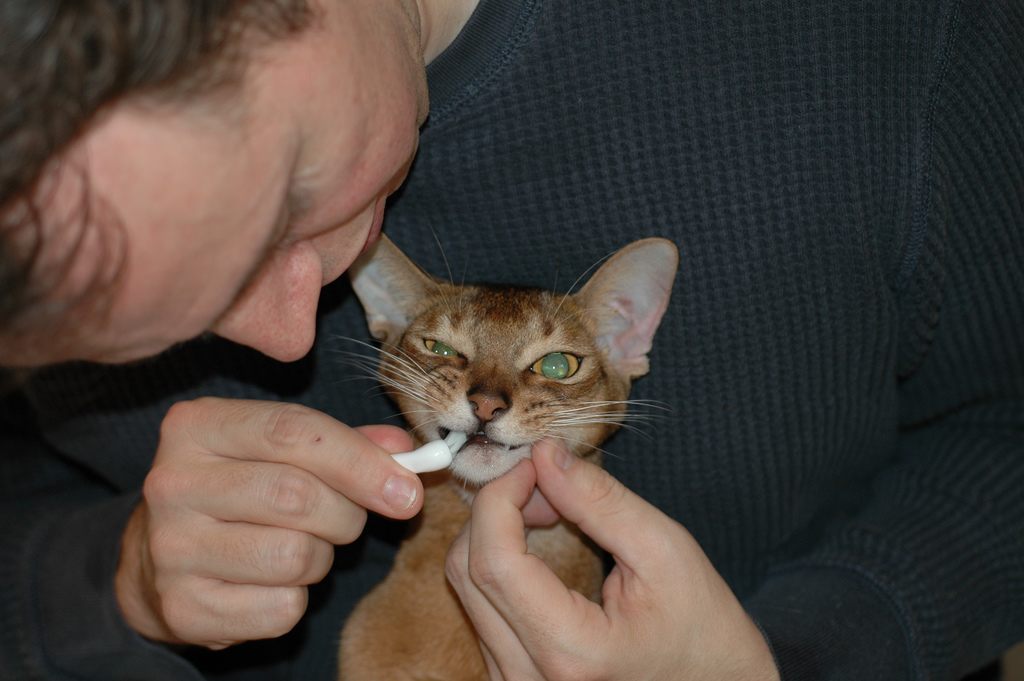The biggest offender is bacteria in your cat’s mouth. These bacteria break down proteins and release sulfur compounds, which have a terrible odor.
- Brush your cat’s teeth: It’s easier than you think! Use a pet-safe, enzymatic toothpaste and a mechanical brush to get the best results. The earlier you start, the better your cat will tolerate it.
- Choose the right food: Many cat foods and dental treats are formulated with enzymes to help dissolve tartar and prevent future buildup.
- Rinse after eating: To reduce bacteria, consider rinsing your cat’s mouth after they eat.
If your cat’s tartar is already severe, it may be time for a professional cleaning.
- Veterinary Dental Care: Your vet can perform a deep cleaning to remove stubborn tartar and plaque, which will clear up the bad breath.
- Diagnose underlying issues: A dental exam also allows your vet to rule out other potential causes of bad breath, like liver or kidney disease.
Beyond tartar, a persistently bad odor can be a red flag for a more serious health issue. Don’t ignore it—consult your veterinarian to ensure your cat is healthy and happy.

















